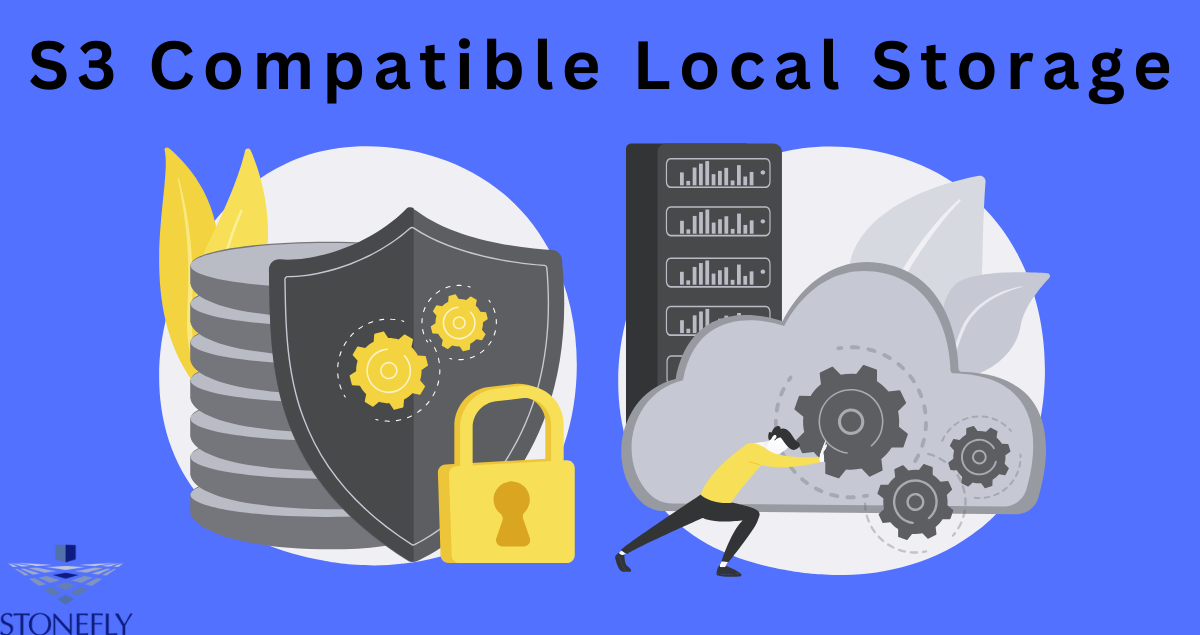Exploring S3 Compatible Local Storage: A Modern Solution for Data Management
In today’s data-driven world, efficient and scalable storage solutions are crucial for businesses and developers alike. Traditional storage methods often fall short in terms of flexibility, scalability, and cost-efficiency, driving the need for innovative alternatives. Enter S3 Compatible Local Storage—a revolutionary approach that combines the benefits of cloud storage with the control of local storage.
What is S3 Compatible Local Storage?
S3 Compatible Local Storage refers to storage solutions that adhere to the S3 API protocol, enabling seamless integration and compatibility with existing S3 tools and applications. Unlike conventional cloud storage, S3 Compatible Local Storage offers the same API accessibility but is hosted locally, providing businesses with more control over their data.
Key Benefits
- Scalability: Easily scale your storage infrastructure without the complexities associated with traditional systems.
- Cost-Efficiency: Reduce expenses by leveraging local resources while maintaining cloud-like functionality.
- Security: Enhance data security by keeping sensitive information within your own infrastructure.
- Compatibility: Enjoy the flexibility of integrating with a wide array of S3-compatible tools and applications.
The Technology Behind S3 Compatible Storage
Architecture
The architecture of S3 Compatible Local Storage typically involves a combination of local hardware and software that emulates the S3 API. This setup includes:
- Storage Nodes: Local storage devices that store the actual data.
- Metadata Servers: Manage metadata and facilitate quick search and retrieval.
- API Gateway: Acts as an interface that translates S3 API requests to the local storage system.
Key Features
- Object Storage: Organize and manage data as objects, making it easier to handle large volumes of unstructured data.
- APIs: Standard S3 API for seamless integration.
- Data Redundancy: Implement data replication and redundancy to ensure high availability and reliability.
- Access Controls: Robust access control mechanisms to secure data at multiple levels.
Use Cases and Applications
Data Management
S3 Compatible Local Storage solutions are ideal for businesses requiring efficient data management systems. These solutions provide scalable and reliable storage for large datasets, making them perfect for industries like healthcare, finance, and education.
Backups
For companies looking to implement robust backup solutions, S3 Compatible Local Storage offers an effective alternative. It allows for straightforward backup processes using familiar S3-compatible tools, ensuring data is secure and easily retrievable.
Software Development
Developers can leverage S3 Compatible Local Storage to streamline application development and testing. The local nature of the storage provides a conducive environment for rapid iteration and debugging without the latency often associated with cloud storage.
Media and Entertainment
Organizations in the media and entertainment industry can benefit from S3 Compatible Local Storage by managing vast amounts of media files efficiently. High-speed access and scalability make it an excellent choice for video editing and storage.
Comparison with Traditional Storage
Traditional Local Storage
- Flexibility: Traditional local storage often lacks the flexibility and scalability of S3 Compatible Local Storage.
- Management: Requires more complex and time-consuming management processes.
- Integration: Limited compatibility with modern Cloud-Based applications and tools.
Cloud-Based Storage
- Latency: Cloud storage can suffer from latency issues, whereas local storage provides faster data access.
- Cost: Ongoing costs for cloud storage can be significantly higher compared to local storage solutions.
- Control: Cloud storage places data control in the hands of third-party providers, while local storage ensures complete control over data.
How to Implement S3 Compatible Storage
Step-by-Step Guide
- Assess Your Needs: Evaluate your storage requirements, including capacity, performance, and security needs.
- Choose a Solution Provider: Select a vendor offering S3 Compatible Local Storage solutions tailored to your requirements.
- Set Up Hardware: Install and configure the necessary local storage hardware.
- Install Software: Deploy the software that will provide the S3 API compatibility.
- Configure API Gateway: Set up the API gateway to handle S3 requests.
- Data Migration: Migrate your existing data to the new storage system.
- Testing and Validation: Conduct thorough testing to ensure the system operates as expected and meets your needs.
- Training and Documentation: Provide training for your team and document the configuration and operational procedures.
Future Trends and Considerations
Emerging Technologies
Advancements in storage technology and AI are likely to enhance the capabilities of S3 Compatible Local Storage. Innovations such as predictive analytics and automated data management can further optimize storage solutions.
Hybrid Cloud Solutions
The integration of S3 Compatible Local Storage with hybrid cloud environments is another promising trend. This approach allows businesses to leverage the best of both worlds—flexibility and scalability of the cloud with the control and cost-efficiency of local storage.
Enhanced Security Measures
As data security becomes increasingly critical, future developments may focus on advanced encryption techniques and improved access control mechanisms to safeguard data.
Conclusion
In summary, S3 Compatible Local Storage offers a compelling solution for businesses and developers seeking efficient, scalable, and cost-effective storage options. With its flexibility, robust features, and compatibility with existing S3 tools, it provides a powerful alternative to traditional and cloud-based storage.
By implementing S3 Compatible Local Storage, businesses can enhance their data management practices, secure sensitive information, and gain a competitive edge in the ever-evolving technology landscape.
Explore the potential of S3 Compatible Local Storage and take your data management to the next level.
FAQs
1. Can S3 Compatible Local Storage be used for both structured and unstructured data?
Yes, S3 Compatible Local Storage can handle both structured and unstructured data efficiently.
2. What is the difference between S3 Compatible Local Storage and traditional local storage?
S3 Compatible Local Storage offers more flexibility, scalability, and integration capabilities compared to traditional local storage solutions.
3. How does S3 Compatible Local Storage ensure high availability of data?
By implementing data replication and redundancy techniques, S3 Compatible Local Storage ensures that data is always available even in case of hardware failures or disasters.
4. Is it possible to integrate S3 Compatible Local Storage with cloud-based applications?
Yes, certain providers offer hybrid cloud solutions that allow for integration between S3 Compatible Local Storage and cloud-based applications. However, it is important to carefully consider the compatibility and performance of such integrations before implementation.
5. Can S3 Compatible Local Storage be used for data backup purposes?
Yes, S3 Compatible Local Storage can serve as an effective solution for data backups with its scalability and reliability features. It also allows for easy retrieval of backed-up data in case of emergencies.





